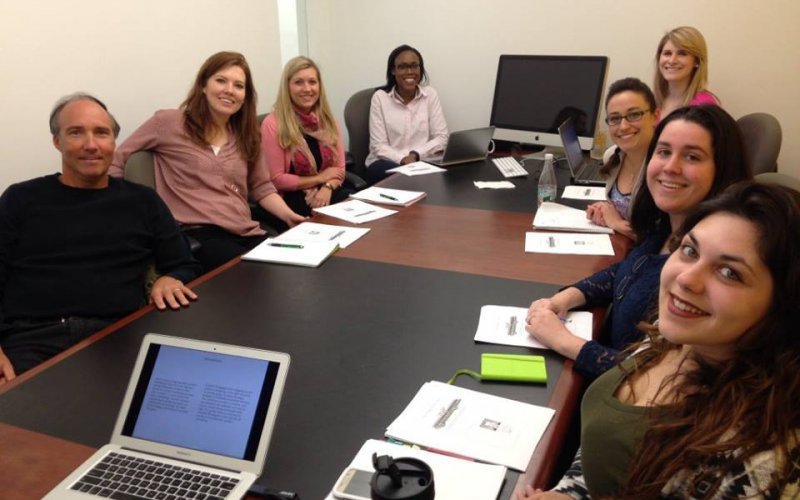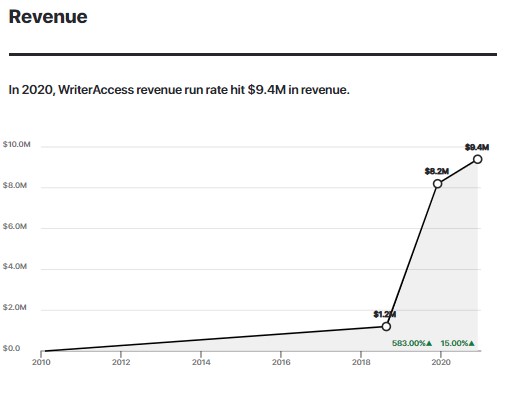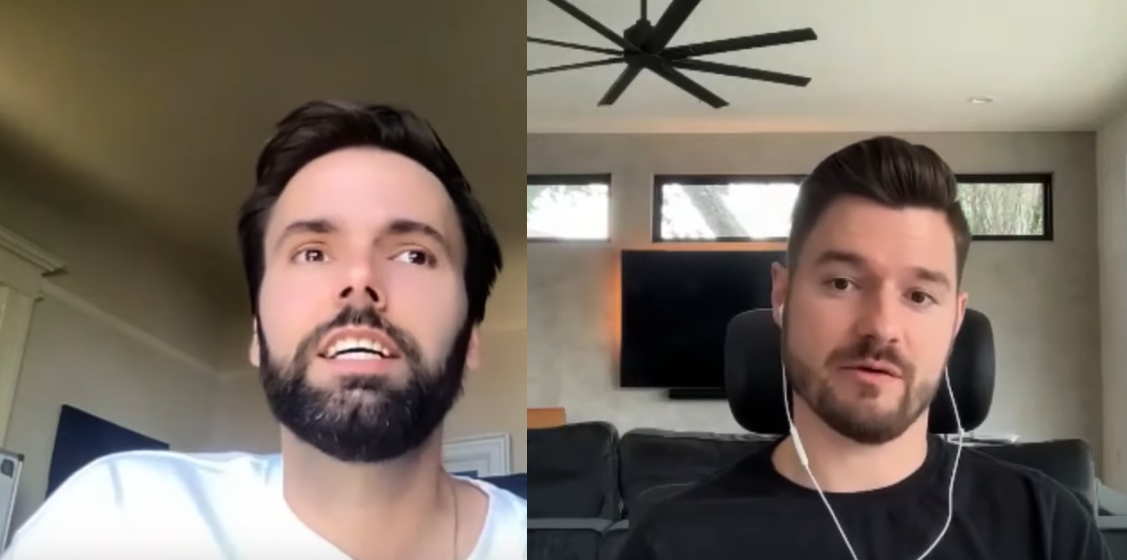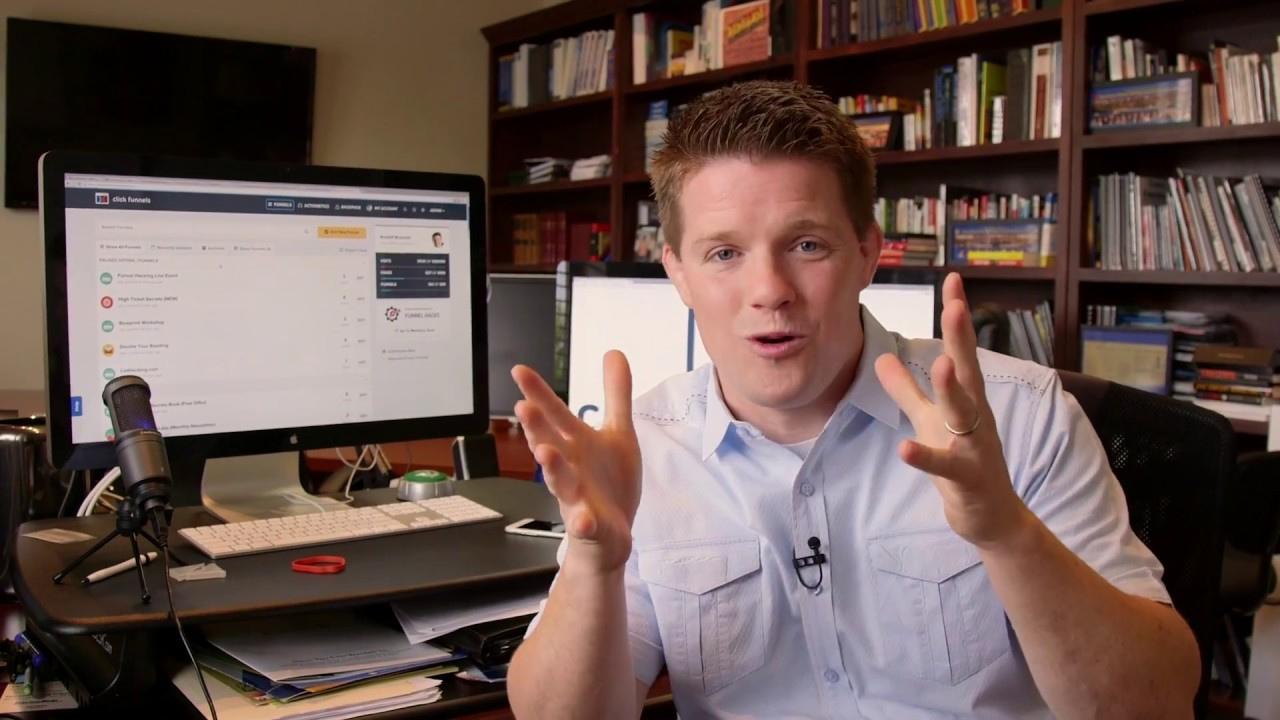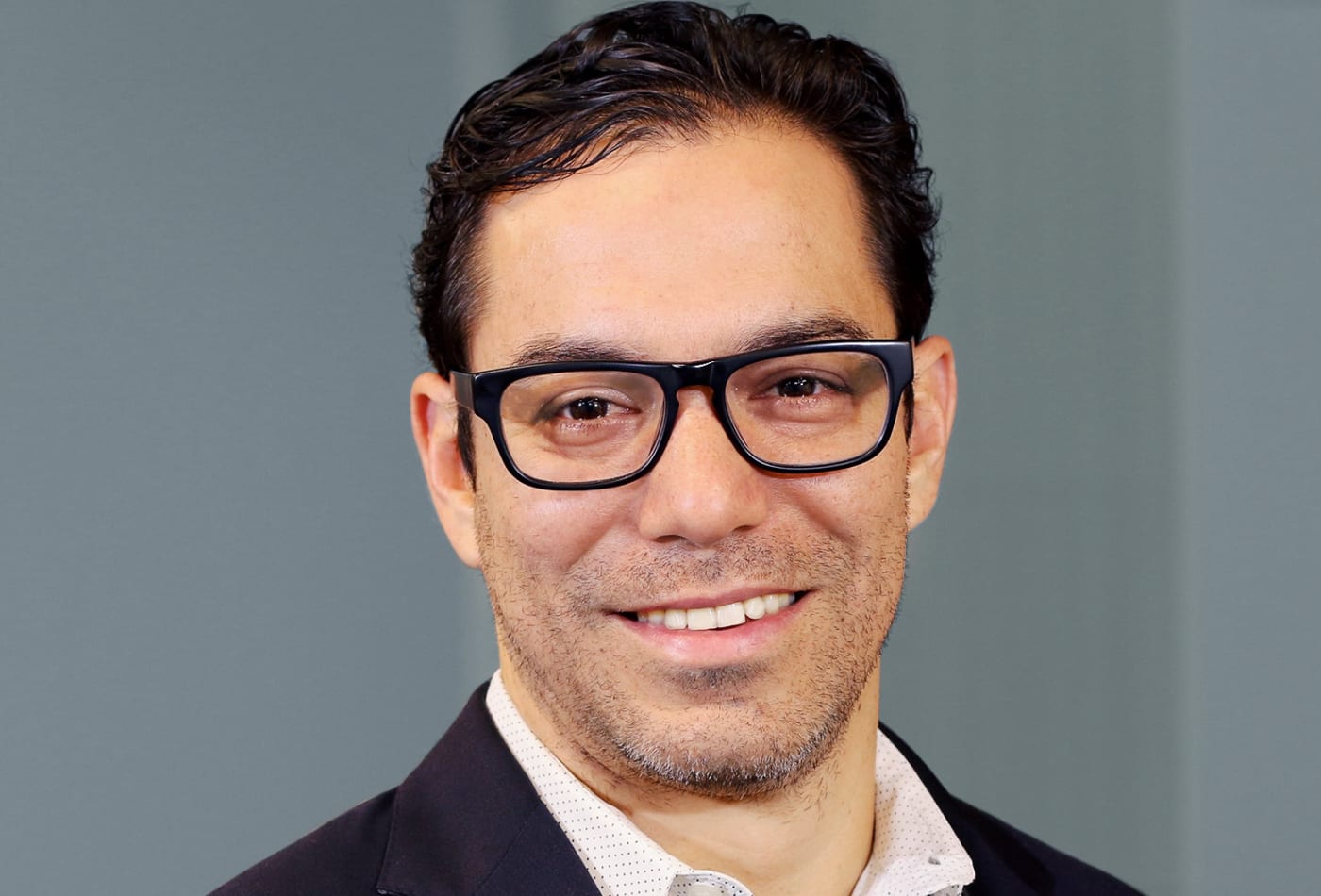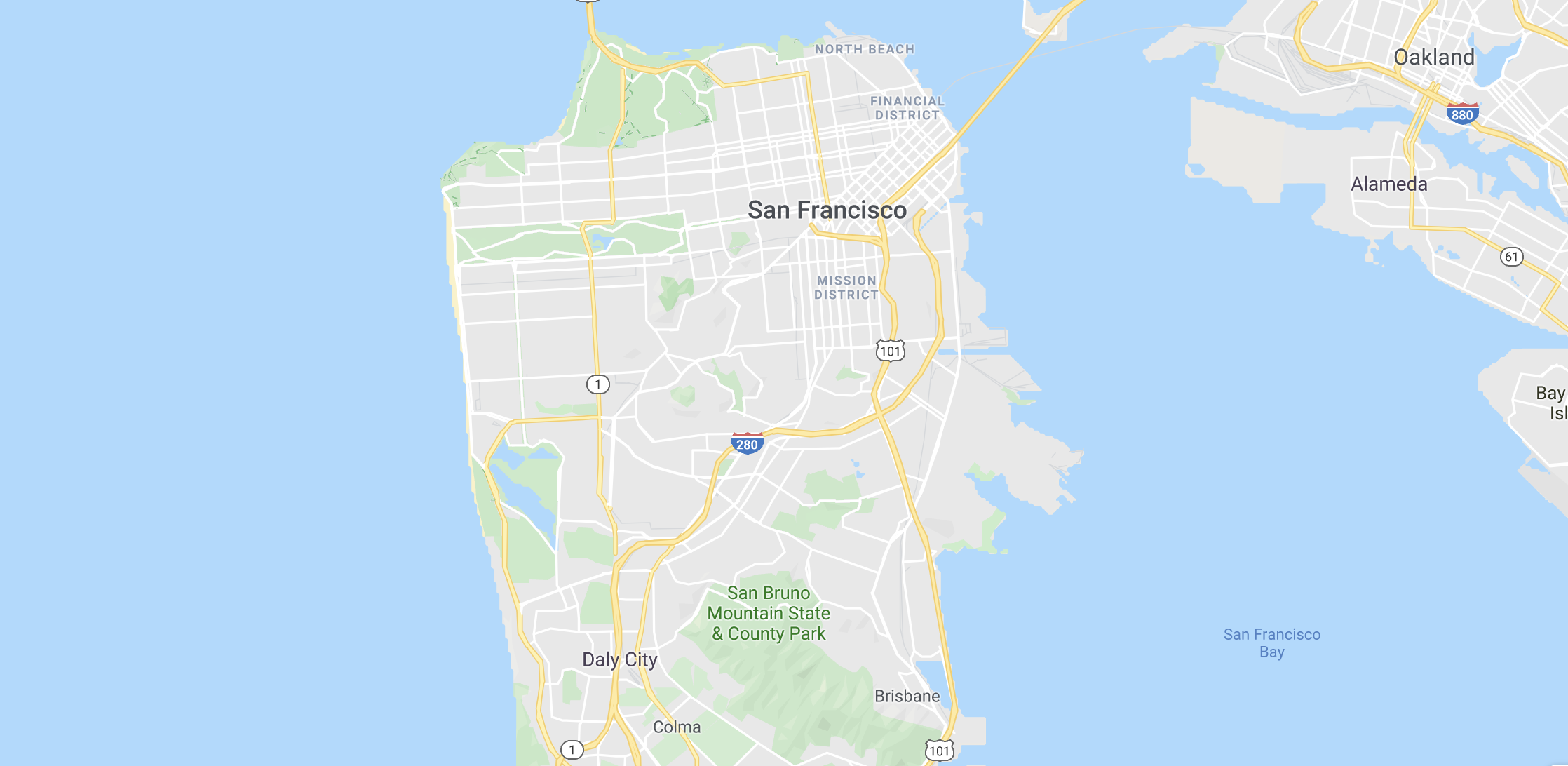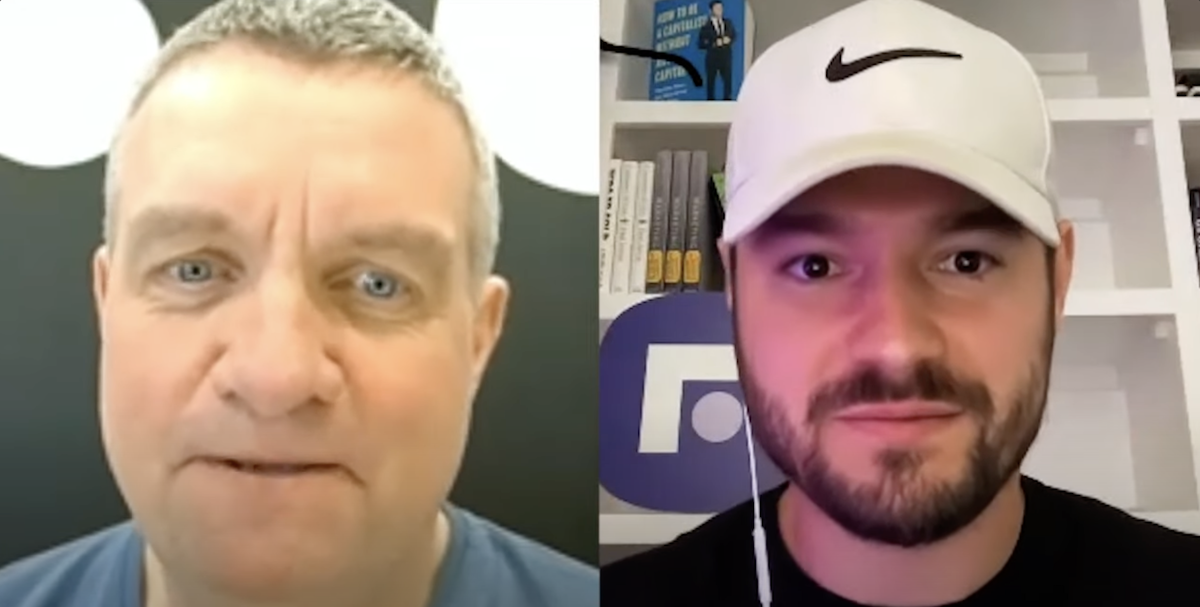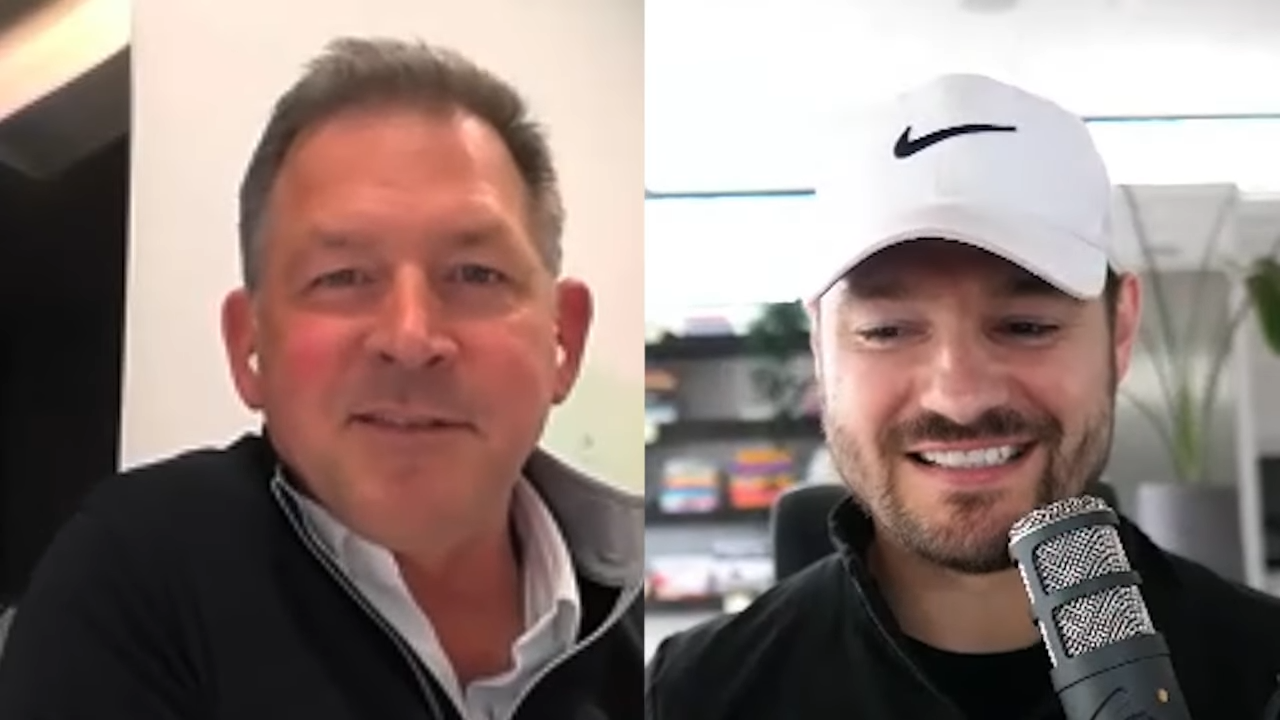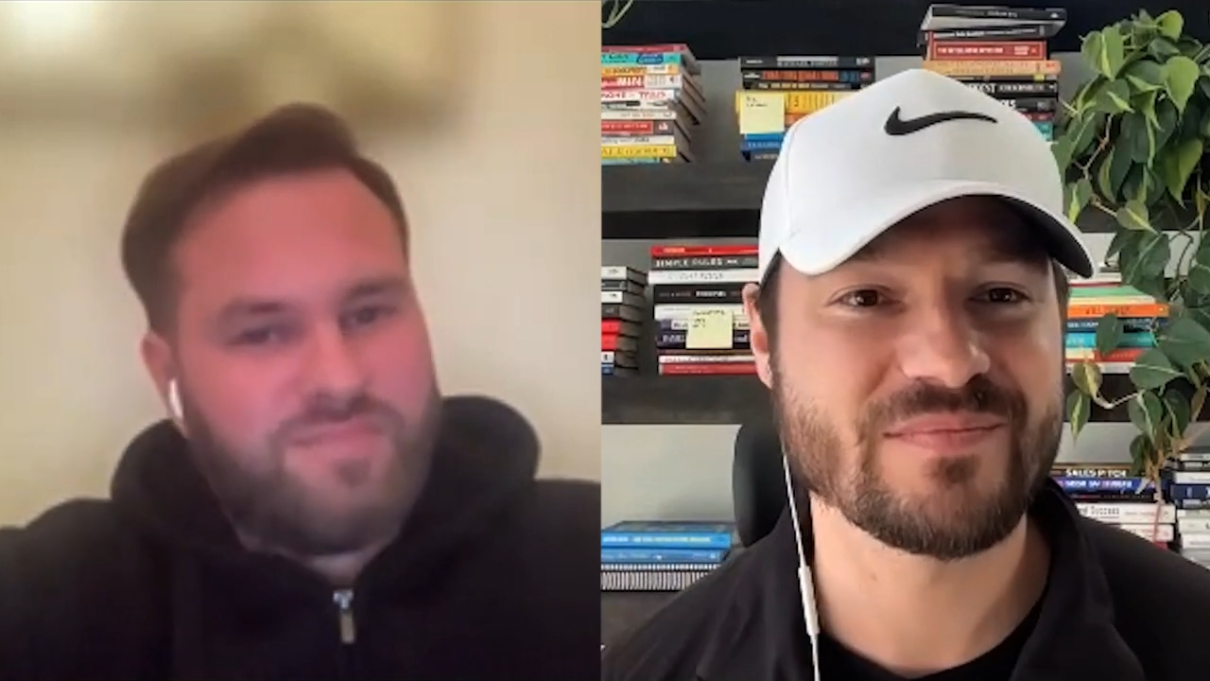Although Byron White founded his bootstrapped company WriterAccess in 2010, much of its growth occurred in the past two years. About 7,000 active customers used the company in 2020, up from 1,000 in 2018. That growth put WriterAccess on track to earn between $9 million and $10 million ARR last year.
WriterAccess connects companies to a network of freelance writers, content strategists, translators and editors. The company “makes it easy to find freelancers, place orders and manage the workflow,” White says in an interview on the Latka Podcast from late 2020.
Over the course of its existence, WriterAccess has serviced 40,000 clients. The company charges a monthly SaaS fee for access to freelancers and software. Monthly rates range from $39 to $99, and clients pay additional costs for content tasks. The biggest clients pay over $100,000 a month to have content created at scale, while smaller clients pay around $100 monthly.
WriterAccess has a team of 12 full-time employees, and, even after paying its freelancers, it has a gross revenue of $3 million.
The company pays 70% of every transactional dollar to its writers. While some writers use WriterAccess as a way to supplement their full-time income, others make upwards of $100,000 per year from their freelance work on the platform.
Source: GetLatka
“We encourage our freelancers to get their own work if they need to or want to,” White says. “We believe in the gig economy, if you will, where many of our freelancers are … completely overqualified to be creating an article on vacuum cleaners or cleaning the house, but they enjoy it.”
WriteAccess provides free resources to writers and clients alike. The company hosted a virtual content strategy conference last year, which 700 people attended. It also runs the WriterAccess Academy, which includes workshop recordings and lessons from a content strategy master class.
The company keeps in touch with its network through weekly emails, but doesn’t sell sponsorships: “We have to practice what we preach. We believe in providing informational assets that are helpful and resourceful, and help people make their life smarter, better, faster and wiser,” White says. “So, we let our work sell itself.”
White hopes to expand WriterAccess to seven countries and launch DesignAccess, which connects companies to designers in the same way WriterAccess does for writers.
“What I enjoy is taking something that I’ve been part of building with my team and making it big, much bigger than we have right now,” White says.
What is WriterAccess’ annual revenue?
In 2020, WriterAccess generated between $9 million and $10 million in ARR.
What is WriterAccess’ monthly revenue?
In 2020, WriterAccess generated between $750,000 and $850,000 in MRR.
Who is the CEO of WriterAccess?
Byron White, age 58, is the CEO of WriterAccess.
Transcript Excerpts
The importance of staying transparent
“That is actually one of the secrets, I think, for our success, is we have been fully transparent with what our rates are, with both freelancers and writers, and our clients. So it’s very important, I think, from our perspective, that we be transparent. Because, frankly, a lot of marketplaces gouge a lot more than that.”
Why WriterAccess hasn’t come close to selling equity
“When you make the Inc. 5000 list, you get repeated phone calls from private equity, venture capital, even on the corporate side, people interested in the business because they see growth. So they’re interested in learning more about the business model. So we’ve talked with dozens and dozens, probably hundreds of people over the years, and keep our door open for communication. But for us, it’s about growing the business and helping our freelancers grow their businesses, which is really what we’re doing.”
Offering services to companies of all sizes
“We are servicing SMBs, tiny little startups, but we’re also servicing Fortune 500 companies and agencies, either micro-entrepreneurs or full-blown, thousand-person agencies that are trying to scale content, often for tens of thousands of clients. Everyone’s looking to us, towards, ‘Give me a great writer, make sure they’re proficient and skilled, and make sure that they can work within the confines of what our orders are.‘ The specifications, the requirements, the rule sets that we can tag on to in order to make sure orders are done the right way, built in a keyword optimization if you need it, checking keyword density analysis.”
Sticking with freelance talent instead of hiring full-time writers
“I think we’re very happy with the freelance base of writers we have, and freelancers we have. We think that’s the right way to build the business model. And it’s not because we don’t want to pay benefits or medical benefits; it’s just because most of our writers have full-time jobs and have those benefits elsewhere, or have purchased their own medical. We have some writers, they make an excess of $100,000 a year with us, and they buy their own medical insurance, and we help them out if they need help on it from an HR perspective. But for the most part, we think that the freelance economy is here to stay, and people like it and want it, and it’s a healthy part of the global infrastructure.”
Full Transcript Nathan: Hello, everyone. My guest today is Byron White, he is the creator of the content creation platform writeraccess.com. Byron, you’re ready to take us to the top? Byron White: Let’s do it. Nathan: All right. So what is WriterAccess? Is this marketplace play here or SaaS? Byron White: A little of both, actually. WriterAccess is a marketplace where you can connect with writers, content strategists, editors, translators, and people that are performing the type of valuable work that content marketers need these days. We charge a SaaS fee to access our talent pool and our software that makes it all work. But essentially WriterAccess makes it easy to find freelancers, place orders, and manage the workflow. Nathan: Now, you came on back, I believe it was September of 2018, I think, you told me that you’d launched the company in 2010. At that point you were just passing about, I think, 1,000 customers. Where are you today? How many customers? Byron White: Well, that 1,000 active customer base probably is… Had been expanded to about 7,000 active customers in the course of a year. Nathan: Oh, wow. Byron White: We also have gone from 100 customers, when we first started in 2010, to more than 40,000 customers that have purchased from us in the history of the company. Nathan: So tell me that one more time, what that means? That basically just means a lot of people touch you, they churn, so you still have 7,000 actively paying today, but 40,000 have paid you something? Byron White: Yes, that’s correct. In the life of the company, 40,000 people have purchased content from us. Nathan: I see. I see. So, take me back to founding year, 2010. How much revenue did you do that year, you remember? Byron White: About a half a million. Nathan: Okay. Interesting. And what did you end up finishing 2019 with? Byron White: About 8.2 million. And I can tell you this because it’s public information. We made the Inc. 5000 list five years in a row, and that’s public. Nathan: Congratulations. Byron White: Sure. Nathan: I would grill you anyway and try and get it if- Byron White: Fair enough. Nathan: … you hadn’t disclosed it. So 8.5 million last year, and what do you think you’ll finish this year with? Byron White: North of nine, south of 10. So we’ll show another growth year this year, for sure. Nathan: And have you done this all bootstrapped? Byron White: Absolutely. Nathan: We love that, that’s impressive. So, a decade in, $10 million company, all bootstrapped, what’s the closest you’ve come to selling equity? Byron White: Not close at all. I haven’t had interest up to this time. We’ve talked with multiple… When you make the Inc. 5000 list, you get repeated phone calls from private equity, venture capital, even on the corporate side, people interested in the business because they see growth, right? So they’re interested in learning more about the business model. So we’ve talked with dozens and dozens, probably hundreds of people over the years, and keep our door open for communication. But for us, it’s about growing the business and helping our freelancers grow their businesses, which is really what we’re doing. We represent thousands of freelancers. Nathan: Yeah. Break down the marketplace for me, let’s just talk about the last 30 days, how many businesses like me have paid you something to access your freelancer talent? Byron White: Thousands. Nathan: Okay. Can you be more… Like two, three, five, 10? Byron White: Less than 10, more than two. Nathan: Okay. Got it. And let’s just make it easy, let’s say it was 5,000, right? 5,000 businesses like me have paid you to access your freelancer talent, how many freelancers have they paid at least a dollar through your platform, over the past 30 days? Byron White: Probably about the same number. I mean, when I say they’ve done business with us, they’ve made a transaction with us. So, remember a couple things, Nathan, we charge a monthly subscription fee for the service, so it’s kind of like a platform as a service, those fees range from 39 to 59, to 79, depending upon what you want. If you just want access to writers and very light software, no problem, but if you want our full service solutions designed, for example, for agencies that are scaling content, you might need our White Label Solution and you might need access to our Shutterstock, Getty Image photo library so your content managers can manage content. Byron White: One content manager can manage content for 50 clients if you’re an agency at WriterAccess, maybe more. So the platform builds in automation, it builds in building a team up, launching articles well in advance of when they’re due, and working on a month-to-month basis to place orders, manage the workflow, cue up the content, push it out directly to WordPress, Facebook, wherever it needs to go, and using our engines and software to do that. So it’s like a content marketing workflow software on steroids. Nathan: Mm-hmm (affirmative). Out of curiosity, I think this is going to surprise people, maybe it won’t be surprising, the customer, don’t name them, but the customer that pays you the most monthly, what do they pay you monthly? Byron White: We have some customers that are paying north of 100,000 a month to have content created at scale. We have customers paying $100 a month, including their $39 a month fee. Right? So that’s interesting, because that’s kind of our problem, right? We’re servicing 93 different industries, more than 90 industries, right? We are servicing SMBs, tiny little startups, but we’re also servicing Fortune 500 companies and agencies, either micro entrepreneurs or full-blown, thousand-person agencies that are trying to scale content, often for tens of thousands of clients. Everyone’s looking to us, towards, “Give me a great writer, make sure they’re proficient and skilled, and make sure that they can work within the confines of what our orders are.” The specifications, the requirements, the rule sets that we can tag on to in order to make sure orders are done the right way, built in a keyword optimization if you need it, checking keyword density analysis. Byron White: Or particular requirements, “I need X, Y, and Z sourced. I need to know your sources. I need you to research these five websites, or…” Every project is different and we’re dealing with so many different types of projects, that’s the other problem, right? Because we’re representing writers, editors, translators, content strategists, and guess what? We just expanded and launched DesignerAccess, and we now represent designers, illustrators, animators, photographers, videographers. And they’re all working in the same platform just with two different brand names, which is a whole nother discussion in itself, Nathan. “Should we change our name or do…” Everyone loves WriterAccess, so we’re stuck, “Do we just have two twin sisters, WriterAccess and DesignerAccess?” I don’t know. It’s our debate of the month within our team. Nathan: Byron, how many people are on your team? Byron White: 12. Nathan: How many engineers? Byron White: Couple. Nathan: Okay. Four or five? Byron White: Less. Nathan: Okay. So, I’m trying to figure out how to phrase this question. The biggest issue I see with founders that come on, who are trying to build marketplaces is… Zirtual ran into this, right? They made a move, and basically moved all of their freelancer talent from just contractors to full-time employees, which jacked up their fixed expenses through the roof, but long-term, can improve their economics. I believe, you just told me 12 full-time on the team, you keep all of your 5,000 freelancers, they are contractors, not full-time employees. The trick with that is, how do you make sure that they will fill the demand that you drive them, based off what you’re paying them, versus them going out and getting their own work personally, themselves? Byron White: We encourage our freelancers to get their own work if they need to and or want to. We believe in the digital… The gig economy, if you will, where many of our freelancers are, I’ll give you some examples, they’re completely overqualified to be creating an article on vacuum cleaners, okay, or cleaning the house, but they enjoy it. They actually like that work. Maybe they do it [crosstalk 00:08:10]. Nathan: Oh, come on. I don’t believe you for two… A technical writer, you’re telling me you can convince him to write an article on vacuum cleaners and love it? Byron White: Not only can I convince them, they only want to do writing that is not within their profession, because they do that all day, every day, during their job. Nathan: Okay. That’s fair. Byron White: That’s the point. Right? So, I think we’re very happy with the with a freelance base of writers we have, and freelancers we have. We think that’s the right way to build the business model. And it’s not because we don’t want to pay benefits or medical benefits, it’s just because most of our writers have full-time jobs and have those benefits elsewhere, or have purchased their own medical. We have some writers, they make an excess of 100,000 a year with us and they buy their own medical insurance, and we help them out if they need help on it from an HR perspective. But for the most part, we think that the freelance economy is here to stay, and people like it and want it, and it’s a healthy part of the global infrastructure. Nathan: Just like Uber’s biggest expense is going to be paying drivers, I imagine your biggest expense annually is paying out your freelancers, right? Byron White: Absolutely. Nathan: So, if you finish this year at, let’s just make the math easy, $9 million, you said somewhere between 9 and 10, let’s just say 9 million, about how much will you pay out to your freelancers? Byron White: That’s also public. We pay 70% of every dollar, transactional dollar that comes in is paid to our freelancers. Nathan: Got it. Byron White: That is actually one of the secrets, I think, for our success, is we have been fully transparent with what our rates are, with both freelancers and writers, and our clients. So it’s very important, I think, from our perspective, that we be transparent. Because, frankly, a lot of marketplaces gouge a lot more than that. Nathan: Yep. Yep. So, I mean, if you look at your expenses to date so far, you’ve probably already paid out over $5.8 million to freelancers. Byron White: Very much so. Nathan: Yeah. On track to be something like 6.5, and you’ve got a bunch of them that basically, it sounds like, use as you full-time, do over 100,000 bucks a year in revenue. Byron White: Yeah. Very much so. Nathan: Interesting. Why isn’t it cheaper to replace those writers that you pay the most with full-time employees that you pay $60,000, fixed, and have them write full time? Byron White: Before we launched WriterAccess, we were a full service content marketing agency, servicing customers like the company store, Brookstone, FTD, Iron Mountain, Salesforce. Great, great brands. And we struggled as an agency, like all agencies do, particularly when you’re a big agency servicing those big brands. When you lose a client, it can be a devastating hit to the agency. Right? Because you have full-time employees, as you just mentioned, relying upon salaries to do the work. But when that goes away… And we had accounts that were half a million, we had one account, it was a million dollar account, another one that was about three quarter of a million, we happened to lose, we didn’t lose those accounts, but they were up on their two year programs with us and they just ended. And we had produced a voluminous amount of content that they just needed to take a time-out and say, “Let us sort this out, see where we’re going. We need to take a break.” Byron White: So that really was the trigger for us to say, “We want to do this differently.” Number one, we want our clients to work directly with freelance writers. Right? We don’t want a middle man to have to send an email alert to a client saying, “Your content is ready to take a look at, let me know what you think.” We wanted the feedback to go directly to the writers. We also wanted the tone and the voice of instructions to go directly from the client directly to the writer. Even actual voices, where we built in voice recording into WriterAccess, a cool feature that allows a writer to, when they’re placing an order, they can have a number dial up and they can call in and leave some voice instructions, which is fascinating because you get to hear the tone and the voice of the client. Nathan: This is interesting. You gave me the numbers earlier, on the last 30 days, 5,000 businesses like me have used you, and you’ve paid out about 5,000 freelancers, what’s total GMV, project value, through the platform past 30 days? Byron White: It’s hard to say. Nathan: You’ve got to be getting close to a million a month? Byron White: We’ve had our… Yes, we’ve had a million dollar month, actually recently. And that’s been exciting, but I think the numbers can also sway even above that or below that, depending upon a lot of variables. On election month, for example, COVID, new rules and regulations and shutdowns. I mean, it’s a weird time of year to be trying to get stable numbers of growth. But overall, good news. WriterAccess has been very lucky, very successful, and hats off to all the entrepreneurs that haven’t done as well as we have, or other people. But we had a very good year this year, which we were blessed with. Nathan: Yeah, I mean, if you do 9.5, top-line, you pay out 6.5 million out to freelancers, you’re helping all those freelancers. Plus, you’ve got 3 million revenue yourself, where your biggest cost is your team of 12. I mean, that means you’re cranking gross revenue per employee of $250,000, which is way above industry average of 180,000. So I mean, profitable business, bootstrap, helping a lot of people make money, this is the way to do it. Byron White: We like to think so. We’re going to keep going on, and we have exciting plans to scale into seven other countries, and to, like I said, expand DesignerAccess, which we’re just now rolling in. We also had a lot of interesting… We had an interesting year. We run a conference, you may or may not remember that, it’s called Content Marketing Conference. Typically, that’s a 600 person live event, that’s what it was in 2019. Because the event fell on April 20th, we had to make a pivot, four week notice, and we moved it all online to a virtual event. We went from 600 attendees to 15,000 registered attendees for CMC. Nathan: Wow. Byron White: It was off the charts. And that helped us certainly to get some visibility for the conference. And that was a lot of fun, to be honest, and a very valuable service. The key to that was we basically made it free, right? Everyone was hunkered down. We wanted to give back to the community, so we opened our doors. And we had 50 speakers, three keynotes, 10 workshops, three-hour deep dive workshops, my Content Strategy certification program was back in there as well, so we could give badges out for people that went through the training. And it’s just been off the charts. We left that program sensing that this community needed education, so we took the Content Strategy certification program and turned it into six workshop webinars, three hours in length. We called them workshop webinars. We had no idea if anybody would show up. The first one we ran, 1500 people registered, 700 showed up, go figure. Who has time? Nathan: That’s crazy. Byron White: It was really against what… Very counterintuitive, to imagine that that something like that could come together. But it’s been great, so we have about a thousand people in, what we call, WriterAccess Academy right now, which is this new free resource for people to learn content strategy, to get content strategy certification. It has the 24 hours of recordings from these deep dive workshops, plus the core elements from my Content Strategy MasterClass book and a workbook. So that’s just a fantastic resource for our fans, both our writers as well as our clients, that are trying to educate and acclimate people on content strategy. Sorry for the long-winded answer there. Nathan: No, no, it’s fine. That’s super helpful to understand. So, I mean, you’re also building, obviously, a massive distribution channel here. How many people do you have on your list that are either content writers themselves or they’re hiring content writers? Byron White: Hundreds of thousands. Nathan: Yeah. I mean, and do you stay in close contact, do you email once a week? Byron White: Absolutely. Yes. Nathan: Yeah. That’s interesting. I mean, there’s a whole model there. I mean, there are brands that only have an email list in this space that are doing a million, 2 million a year, just selling sponsorships into that size sort of list. Have you played with that? Byron White: No. Nathan: Yeah. Yeah. Interesting. Byron White: I mean, we don’t really hard sell too much to our list, hard sell anything to them, other than… We offer free webinars, we provide spotlights for our talent. We just feel like, remember, we’re in the content marketing space, right? So we have to practice what we preach. We believe in providing informational assets that are helpful and resourceful, and help people make their life smarter, better, faster, and wiser. So, we let our work sell itself. Nathan: Last question, there’s a lot of folks in this space that are not running their marketplaces as efficiently as you are, Penji is an example in the design space, Design Pickle is also in that space. I’ve interviewed probably three dozen that are in this space, doing somewhere between 3 and $20 million in revenue. If I figured out a way to get you a hundred million bucks and say, “Listen, Byron, keep 20% of the company. I get 80%.” So I’m bringing the revenue, but you go buy a bunch of these things, and build a hundred million dollar revenue company that you’re paying out 10,000 freelancers each year over $100,000 each. I mean, would you ever go for something like that or do you really enjoy your freedom? Byron White: What I enjoy is taking something that I’ve been part of building with my team, and making it big, much bigger than we have right now. And our way to do that, is a bootstrap, [inaudible 00:17:34], as an entrepreneur that doesn’t need VC funding, and I’m past that anyway, and even private equity would be questionable, whether they could help us do what we want to do, our strategy is to go abroad. Go to other countries and take the self [inaudible 00:17:51] fabric that we’ve created and make it accessible to people outside the United States, that can grow. So we’re kind of doing that on our own. Would I welcome the opportunity to talk with anybody else in this industry and see what it looks like to put businesses together, to form something bigger, larger, or more scalable, so we can put more food on the table for freelance writers and help our business grow? Absolutely. I mean, roll-ups are inevitable, right, Nathan? Nathan: Yes. Byron White: I’m sure you have a lot of fans that are listening in, that are on the PE side of the V, the venture capital side, and saying, “Who can we roll together? Who’s doing it well out there?” Right? I mean, that’s a big part of your audience. So- Nathan: The hard part is finding the hub. That’s the hard part. The leader that can do it all. Byron White: That’s right. I mean, it will be an interesting exercise on the design side, Nathan, what we do over there. I’m very against the 99design sort of model, which by the way, 99designs just sold to Vistaprint. I’m not- Nathan: Saw that. Byron White: … you saw that or not. And their- Nathan: And Matt’s been on the show many times, the founder of 99designs, to walk through that model. It’s just a very different model. Byron White: And by the way, I thought that was really interesting, that he moved to Australia. He was going to maybe take the company public over there. I mean, I need to go back and listen to those. Noted. Nathan: I will, yes. Byron White: I need to, forget about you. You recorded them. I need to go listen to what he had to say. But I’ve never met him, I don’t know who he is, but I think that when you look at their model, they started out with like, 99 designers do the work, but only one of them gets paid. That was the model. It was crowdsourced design, which makes sense for a quick logo, maybe it makes sense. And there was actually a great review, I gained a lot of respect for 99designs from a really great author of Communication Arts magazine that made a defense of that crowdsource model saying, “Look, I enjoy competing. Why not? This is fun. I don’t take it personally if I don’t win.” The problem is people that are depending upon revenue from these marketplaces, and that’s where it gets tough. Byron White: But I think we’ve seen Matt pivot away from that and be more like, lock into a designer, give them an opportunity to perform. And that’s the tact where we’re going, that’s what’s worked successful for writers. We don’t really agree with, or like, the crowdsource model. So that’s where we’re going on the design side. But, hey, some of these… Design Pickle, I don’t know. I don’t know. I mean, their model’s interesting, but their freelancers are seemingly overseas, or they’re kind of on their payroll, I’m thinking. I don’t know. You did an interview. Nathan: I just think there are a lot of ways for you to, in my opinion, to very efficiently deploy capital, besides just your current model. Right? I mean, you also have these, if you want to stay in writing only, there are all these brands that I know, right now, that are looking at selling, that are massive communities in the writer space. Or like you getting into the Self-Publishing School, what Chandler is building, and using your writers to write books, right? You look at what Tucker is doing with Book In A Box, that has now obviously changed and edited and gone through… Scribe, right, is now what it is. I mean, there’s so many opportunities for you, in terms of content. So we’re watching closely, that’s why I had you on. I appreciate you coming back on, Byron. Byron White: Hey, great to be here with you. Thanks for your time. Nathan: All right. You bet. Let’s wrap up here very fast with the Famous Five. Number one, favorite business book? Byron White: I’m still going back to In Search of Excellence. I think about it all the time, and I’m always in search of excellence so I’m going with Tom Peters. Nathan: Number two, is there a CEO you’re following or studying? Byron White: Not really. Not with Steve Jobs out of the picture. I mean, there’s certainly a lot of respect for a lot of CEOs out there, but Steve Jobs, for me, was somebody that I had a great deal of admiration and respect for. Nathan: Number three, what’s your favorite online tool for building WriterAccess? Byron White: Tools that we created ourselves, like WordVision, which went defunct. But it became a catalyst for what we could do differently at WriterAccess, namely track the performance of content that we’re creating for our clients, and is baked in free of charge at WriterAccess. Nathan: Interesting. Number four, how many hours of sleep to get every night? Byron White: Four to six. Nathan: And situation? Married, single, kids? Byron White: Married, with kids from a previous marriage. Nathan: How many? Byron White: Son, Colby. Go, Colby. Nathan: One. One kiddo? Byron White: One child, yeah. From a previous marriage. Nathan: All right, very cool. And how old are you? Byron White: 58. Nathan: Byron White: To be an entrepreneur. I’ve been dreaming about it forever, and living the dream, I guess you could say. Nathan: Guys, WriterAccess, they’ve have over 5,000 businesses paying them over the past 30 days to access over 5,000 writing freelancers’ talent. They’ll do 9.2 million, in terms of money through the platform this year, have many freelancers that make over a hundred grand via the platform. They pay out 70% of their total revenue out to their writers, but still, even after that spend, 3 million in gross revenue into the company of just 12 people. He’s done it totally bootstrapped since 2010, growing nicely, over $8.5 million in GMV in 2019, and just 1.2 back in 2018. So, nice growth. Look out for DesignAccess coming out next. Byron, and thanks for taking us to the top. Byron White: Hey, thanks Nathan. Speaker 3: One more thing before you go, we have a brand new show every Thursday at 1:00 PM Central. It’s called Shark Tank for SaaS, we call it Deal or Bust. One founder comes on, three hungry buyers, they try and do a deal live and the founder shares backend dashboards, their expenses, their revenue, ARPU, CAC, LTV, you name it, they share it. And the buyers try and make a deal live. It is fun to watch. Every Thursday, 1:00 PM Central. Additionally, remember these recorded founder interviews go live, we release them here on YouTube every day at 2:00 PM Central. To make sure you don’t miss any of that, make sure you click the subscribe button below here on YouTube, their big red button, and then click the little bell notification to make sure you get notifications when we do go live. I wouldn’t want you to miss breaking news in the SaaS world, whether it’s an acquisition, a big fundraise, a big sale, a big profitability statement or something else, I don’t want you to miss it. Speaker 3: Additionally, if you want to take this conversation deeper and further, we have by far the largest private Slack community for B2B SaaS founders, you want to get in there. We’ve probably talked about your tool if you’re running a company, or your firm, if you’re investing. You can go on there and quickly search and see what people are saying. Sign up for at nathanlatka.com/slack. In the meantime, I’m hanging out with you, here on YouTube. I’ll be in the comments for the next 30 minutes, feel free to let me know what you thought about this episode, and if you enjoyed it, click the thumbs up. We get a lot of haters that are mad at how aggressive I am on these shows, but I do it so that we can all learn. We have to counter those people. We got to push them away, click the thumbs up below to counter them, and know that I appreciate your guys’ support. All right, I’ll be in the comments. See ya.
